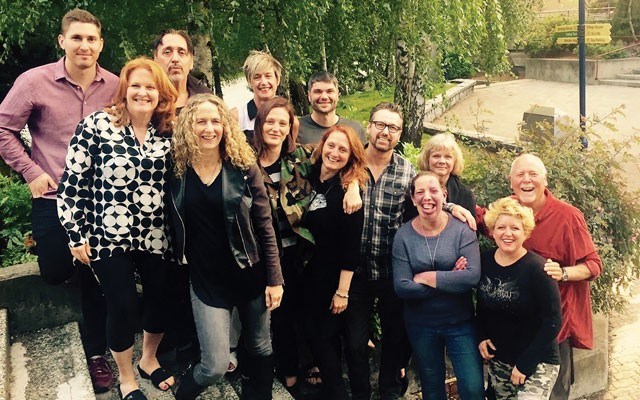Six screenwriters had a chance to hone their projects and talk about the film industry last week in Phase 1 of the annual Whistler Film Festival (WFF)-Praxis Screenwriters Lab.
A feature film script development program that brings together independent screenwriters from across Canada, the Screenwriters Lab helps writers create a plan for their projects, says WFF executive director Shauna Hardy Mishaw.
"It's a cool scene and amazing process," says Hardy Mishaw.
"We firmly believe that the projects are completely viable and could be made into films."
The Screenwriter Lab will be a keystone program in the future WFF Institute, which is still in development, she adds.
Hardy Mishaw says there were 76 applicants in all.
The six selected this year are Titus Heckel, with his action comedy Chaos Theory; Elisa McRae, with her dramedy Colour Me Jane; Allan Hopkins, with his supernatural comedy Indian Road Trip; Ashley Fester, with her period drama, The Long Way Home; Dusty Manicelli, with his suspense drama Little Kings, and Sandy Yates, with her action crime story Red Serge Duty.
Sitting in a session with producer Emily Alden of Pacific Northwest Pictures, the WFF-Praxis fellows learned how to take their films forward. Each needed to take a different route, depending on the type of films they planned to make, who they wanted to star, budget, and the current conditions of the industry.
Each screenwriter was also given a mentor to work with, including well-known industry representatives such as Michael Miner, the director of Robocob.
WFF facilitator Angie Nolan says the fact that the program is now situated in Whistler creates an atmosphere not unlike a summer camp.
"It brings out more of the creativity. You're kind of isolated up here and it's really intensive," Nolan says.
"It's a safe environment... there is a lot of support for writers, to nurture their process.
"The writers get sent off with a lot of homework to do at the end of the day!"
One of the screenwriters in the lab, Allan Hopkins, was in a previous WFF program of indigenous filmmakers. He extended the short film he wrote into Indian Road Trip.
"It was a script that had been in the back of my mind for a long time. I wrote it all in a fever pitch with very little filters," Hopkins says.
"It was something I had to get out on paper."
He says the programs he has taken through WFF have been more than helpful.
"They very much fit hand-in-glove with each other, and I am really looking forward to taking this forward," he says.
The writers return to Whistler for the second part of the Screenwriters Lab during WFF, From Nov. 29 to Dec. 3.
For more information on WFF, visit www.whistlerfilmfestival.com.




